Q
how much is a new tyre for a toyota yaris
In Malaysia, the price of new tires for a Toyota Yaris can vary quite a bit depending on the brand, size, and type you go for. Generally, you're looking at a range from around RM200 to RM600 per tire. If you're after the original equipment (OE) spec, like those Bridgestone or Dunlop 15-inchers that came with the car, you'll probably be looking at RM300 to RM450 each. On the flip side, more budget-friendly brands such as Silverstone or Goodride can start as low as RM200.
It’s smart to pick tires that match how you drive. For example, if you’re mostly zipping around the city, an energy-efficient tire makes sense. But if you like a bit more zip and better handling, then a high-performance tire might be more your style. Don’t forget to keep an eye on tire wear and pressure regularly—this simple habit can really stretch their lifespan. And given Malaysia’s rainy weather, good water dispersion (tread pattern) is a must for staying safe on wet roads.
When you’re ready to buy, it’s worth checking prices between specialist tire shops and the official Toyota service centers. Some places even throw in free installation or wheel balancing, which can save you some cash on maintenance in the long run.
Special Disclaimer: This content is published by users and does not represent the views or position of PCauto.
Related Q&A
Q
What is the sport mode on a 2019 Toyota Yaris?
The Sport Mode on the 2019 Toyota Yaris is a drive mode selection feature that primarily enhances power response and handling by adjusting the vehicle's electronic control systems. When activated, the transmission delays upshifts to keep the engine in a higher rev range, delivering quicker acceleration, while the steering might feel slightly heavier to improve road feedback. This mode works best for highway overtaking or mountain road driving, letting the 1.5L naturally aspirated engine stretch its legs a bit more. Keep in mind, though, that Sport Mode does bump up fuel consumption slightly, so it's best used for short bursts when you need that extra zip. Rivals like the Honda Jazz or Mazda 2 offer similar modes too, but each has its own tuning—some focus on linear acceleration, others on sharpening cornering stability. Running Sport Mode all the time could speed up wear on the drivetrain, so make sure to check your transmission fluid and engine condition regularly. Also, pairing it with the manual shift function can take the driving experience up another notch.
Q
How to check transmission fluid 2019 Toyota Yaris?
To check the transmission fluid in a 2019 Toyota Yaris, first make sure the vehicle is parked on level ground and start the engine to let the transmission reach operating temperature (usually after driving for 10-15 minutes). Shift through all gears briefly, then return to Park and engage the parking brake. Open the hood and locate the transmission dipstick (typically with a red or yellow handle, near the firewall). Pull out the dipstick, wipe it clean, reinsert it fully, then pull it out again to check the fluid level—it should be within the "HOT" marks. Also inspect the fluid color (normally clear red; if it's black or has a burnt smell, it needs to be changed promptly). Note that some newer Yaris models may have a sealed transmission without a dipstick; these require a professional technician with special tools to check or replace the fluid. Regularly checking the transmission fluid protects the drivetrain effectively. It's recommended to replace it every 40,000-60,000 kilometers or as specified in the maintenance manual. If you frequently drive in stop-and-go traffic, you can shorten this interval slightly. Using non-genuine fluid may cause gear-shifting hesitation or transmission damage, so Toyota's original ATF WS fluid is recommended.
Q
What engine does a 2019 Toyota Yaris have?
The 2019 Toyota Yaris offers a range of engine options across different markets, with specific configurations varying by trim level and regional specs. Common powerplants include a 1.5-liter four-cylinder naturally aspirated engine (badged 1NZ-FE or an updated variant), pushing out around 107 horsepower. This unit pairs with either a 5-speed manual or 4-speed automatic transmission. Higher-spec models might upgrade to a more efficient 1.2-liter turbocharged engine or a hybrid system. Known for reliability and fuel efficiency, this engine uses Dual VVT-i variable valve timing to optimize low-end torque and high-speed power delivery—perfect for city driving. It’s worth noting that the same-generation Yaris also spawned the GR Sport variant, packing a more potent 1.6-liter turbo engine, though these performance models are pretty rare locally. For maintenance, stick to the 10,000 km or 6-month interval for full synthetic oil changes, and regularly clean the throttle body to keep the engine running efficiently. Toyota’s factory 100,000 km warranty is a nice bonus too, helping cut down on long-term repair costs. If you’re eyeing a used Yaris, pay extra attention to the engine mount bushings and timing chain condition—these are common wear items on higher-mileage examples.
Q
Is the 2019 Yaris a Mazda?
The 2019 Yaris isn't a Mazda; it's a classic compact car from Toyota. However, it's worth noting that in some markets like North America, Toyota collaborated with Mazda to launch the Yaris iA (later renamed Mazda2 Sedan), which was based on the Mazda2 platform. But that's different from the Yaris models commonly seen locally. The 2019 Yaris sold locally was still Toyota's independently developed third-generation model (XP150), powered by a 1.5L naturally aspirated engine, focusing on affordability, practicality, and reliability. Its design and technology were all from Toyota, such as standard VSC vehicle stability control and seven airbags for safety. It's important to note that platform sharing or joint production between car brands is common in the industry. For example, Toyota also has technical partnerships with Suzuki and Subaru. Such collaborations help optimize R&D costs and integrate the strengths of each brand, but they don't change the brand ownership of the vehicles. For consumers, when choosing a car, they should focus more on the specific model's configuration, after-sales network, and their own needs rather than just fixating on brand connections.
Q
How many miles per gallon does a 2019 Toyota Yaris get?
Fuel economy for the 2019 Toyota Yaris varies by trim and transmission. According to official figures, the automatic models with the 1.5L four-cylinder engine return around 30 mpg city, 36 mpg highway, and a combined 33 mpg. The manual transmission version is slightly thirstier, checking in at about 32 mpg combined. This car has won over plenty of buyers with its budget-friendly fuel costs and solid reliability, making it a great pick for daily commutes and city driving. Beyond just sipping gas, the Yaris is known for its compact size and nimble handling—perfect for navigating busy urban areas. If you’re really looking to maximize efficiency, keeping your tires properly inflated and avoiding aggressive acceleration or hard braking can help squeeze out a few more miles per gallon. And hey, if fuel economy is your top priority, it might be worth checking out hybrid options too—they typically deliver even better mpg numbers.
Q
What is the fuel efficiency of the 2019 Toyota Yaris?
The 2019 Toyota Yaris delivers impressive fuel economy, with figures varying slightly depending on the trim and transmission. The version equipped with the 1.5-liter four-cylinder engine and CVT transmission averages around 5.6 L/100km in city driving, drops to roughly 4.7 L/100km on the highway, and posts a combined fuel consumption of about 5.1 L/100km. That kind of efficiency makes it a solid pick for both daily commutes and longer road trips without breaking the bank at the pump. It’s worth keeping in mind that fuel efficiency can be influenced by driving habits, road conditions, and vehicle maintenance. Sticking to smooth acceleration, avoiding sudden braking, and keeping up with tire and engine maintenance can all help squeeze even more miles out of each tank. As a compact car, the Yaris has long been popular for its reliable performance and low upkeep costs, and its fuel economy stacks up well against competitors in its class. If you’re really looking to maximize fuel savings and eco-friendliness, the hybrid version is worth checking out—it takes fuel efficiency to an even higher level.
Q
Is a 2019 Toyota Yaris a good car?
The 2019 Toyota Yaris is a solid all-around subcompact that’s perfect for daily commuting. It carries on Toyota’s reputation for reliability and durability, with a smooth 1.5L naturally aspirated engine that delivers great fuel economy—ideal for city driving. While the interior isn’t the roomiest, the layout is smart, and there’s enough storage space for everyday needs. The cabin materials prioritize functionality over flash, and in terms of features, you get basic safety gear like ABS and airbags, with higher trims possibly adding nice-to-haves like a backup camera. Maintenance costs are reasonable, parts are easy to come by, and it holds its value well as a used car. If you’re on a tight budget and value practicality and dependability, the 2019 Yaris is definitely worth a look. The subcompact segment is pretty competitive, though—besides the Yaris, check out rivals like the Honda Jazz or Mazda 2. They each have their own strengths, whether in handling or interior design, so it’s a good idea to test-drive a few and see which fits your needs best before deciding.
Q
Is the 2019 Yaris a reliable car?
The 2019 Yaris holds up pretty well in terms of reliability. It carries on Toyota's usual reputation for durability, with that tried-and-true 1.5L naturally aspirated engine under the hood. Maintenance costs are pretty reasonable, making it a solid pick for daily commuting. The transmission shifts nice and smoothly, and the suspension setup leans towards comfort, which works well for local road conditions. The interior space isn't exactly cavernous, but the storage solutions are practical. Fuel economy is another plus – it's pretty efficient, so you'll save a decent amount on gas over time. When it comes to keeping it reliable, make sure to keep up with regular maintenance records, especially things like transmission fluid and brake upkeep. Those little details really affect how the car holds up long-term. If you're looking at the used market, the 2019 Yaris has decent resale value, but when checking one out, pay extra attention to the electrical system and suspension components. Those can turn into problem areas if they haven't been properly maintained. Compared to its peers, it has a relatively low failure rate, but even so, holding onto complete service records after buying will help keep it running at its best.
Q
How much is a 2019 Yaris?
The 2019 Toyota Yaris typically ranges from around RM50,000 to RM70,000 in the used car market, with prices varying based on condition, mileage, trim level, and location. The higher-spec 1.5L Sport variant or hybrid models might edge closer to RM80,000. Known for its reliability and fuel efficiency, this car’s 1.5L Dual VVT-i engine paired with a CVT transmission works great for city driving. Maintenance costs are reasonably affordable too, making it a top pick for many families. When buying used, it’s smart to check service records and accident history—factory-certified used cars are your best bet for quality. Keep an eye out for warranty offers from Toyota or authorized dealers; these vehicles usually go through strict inspections and come with extra coverage. Plus, the Yaris holds its value well for a subcompact, so you won’t take a huge hit when reselling later. If you’re on a tighter budget, 2018 or 2020 models are worth considering—they’re pretty similar in features but might be more budget-friendly.
Q
How much is a 2019 Yaris worth?
The 2019 Toyota Yaris is currently fetching prices in the used car market ranging from approximately RM55,000 to RM75,000. The exact price depends on factors like condition, mileage, trim level, and service history, with higher-spec 1.5L Sport variants or hybrid models usually commanding a premium. This car is known for its reliability and fuel efficiency, making it perfect for city commuting. Its 1.3L or 1.5L engine delivers smooth power, and maintenance costs are relatively low. With a strong presence in the used car market, parts are readily available, ensuring easy follow-uprepairs. When buying, it's advisable to check for complete service records, pay special attention to the transmission and chassis condition, and consider using a third-party inspection service to verify the car's condition and avoid accident-damaged or flood-affected vehicles. Additionally, keep an eye on the expiry dates of road tax and insurance, as these can impact the final transaction price.
Popular Cars
Model Year
Car Compare
Car Photo
Latest Q&A
Q
Do you put gas in a fuel cell car?
Hydrogen fuel cell vehicles do not require traditional gasoline; instead, they use hydrogen as fuel. Their working principle is to directly convert the chemical energy of hydrogen and oxygen into electrical energy through fuel cells, which drives the electric motor to propel the vehicle. Only water and a small amount of heat are produced during the reaction, achieving zero carbon emissions. Specifically, hydrogen is delivered from the high-pressure hydrogen storage tank to the anode of the fuel cell, where it decomposes into protons and electrons under the action of a catalyst. Protons pass through the exchange membrane to reach the cathode, while electrons form an electric current through the external circuit to drive the motor, and finally combine with oxygen at the cathode to produce water. The advantages of such vehicles include fast hydrogen refueling in 3 to 5 minutes, a driving range of over 600 kilometers, and an energy conversion efficiency of over 60%, which is much higher than that of traditional internal combustion engines. Currently, mass-produced models such as the Toyota Mirai are already available in the local market, but the hydrogen refueling station infrastructure still needs to be improved. It should be noted that hydrogen needs to be replenished in high-pressure or liquid form through dedicated hydrogen refueling stations, and its storage technology involves special equipment such as carbon fiber storage tanks, which is fundamentally different from the refueling method of gasoline vehicles. With the development of the hydrogen energy industry chain, the application of such clean energy vehicles in the commercial vehicle sector is gradually expanding.
Q
Do hydrogen cars require oil change?
Hydrogen-powered vehicles do not require oil changes, and their maintenance differs significantly from that of traditional fuel vehicles. Vehicles using hydrogen fuel cell technology have a structure similar to pure electric vehicles, replacing internal combustion engines with electric motors, thus eliminating the need for replacing traditional consumables such as engine oil and spark plugs. The maintenance focus is on the fuel cell system, including regular checks of the sealing integrity of hydrogen storage devices, the performance status of fuel cell stacks, and the safety of high-voltage electrical components. Daily monitoring of pipeline connections, coolant levels, and high-voltage wiring harness conditions is required, with special attention given to the replacement cycle of hydrogen filters (approximately 60,000 kilometers). The unit price of this component ranges from about RM200 to RM2000, but replacement frequency is low. Taking local market models such as SAIC MAXUS MIFA Hydrogen as an example, the total maintenance cost for 60,000 kilometers is approximately RM1500, which is significantly lower than that of fuel vehicles with the same mileage. It is worth noting that hydrogen-powered vehicles must be stored in a ventilated environment, and if parked for extended periods, the fuel cell system should be activated for 30 minutes every two weeks to maintain system activity. Although these special requirements increase operational complexity, the overall maintenance costs remain competitively advantageous.
Q
What is the difference between fuel cell and diesel?
Fuel cells and diesel engines differ significantly in terms of power principle, energy efficiency, and environmental friendliness. Fuel cells generate electricity directly through the chemical reaction between hydrogen and oxygen to drive motors, with an energy conversion efficiency of over 30%, much higher than the 22%-24% of diesel engines. Moreover, they only emit water during operation, achieving zero pollution. Diesel engines, on the other hand, rely on burning diesel to obtain mechanical energy and require complex transmission systems to drive vehicles. Although they offer the advantages of convenient refueling and long driving range, they produce exhaust emissions. Technically, fuel cells employ static energy conversion, resulting in lower noise and vibration, and their short-term overload capacity reaches 200%. However, they face challenges such as high manufacturing costs and insufficient hydrogen refueling infrastructure. Diesel engines benefit from mature technology and an extensive maintenance network, but their efficiency is limited by the Carnot cycle. Currently, fuel cell vehicles like the Toyota Mirai can achieve a 600-kilometer range with just 3 minutes of hydrogen refueling, while diesel vehicles remain dominant in long-distance transportation. The two technologies complement each other in terms of energy structure, application scenarios, and technical maturity.
Q
Is a hydrogen fuel cell AC or DC?
Hydrogen fuel cells directly generate direct current (DC) during chemical reactions. Their working principle involves hydrogen ions at the anode combining with oxygen ions at the cathode to form water, while electrons flow through an external circuit to create an electric current. This electrochemical reaction inherently results in DC output. Fuel cell systems are typically equipped with power conversion devices (such as inverters) to convert DC into alternating current (AC) for vehicle motors or other AC loads, but the core power generation process always produces DC output. Currently, the theoretical voltage of a single mainstream proton exchange membrane fuel cell (PEMFC) is 1.23V, with an actual operating voltage ranging from 0.5-1V. Voltage is increased through stacking multiple cells in series, and high-temperature fuel cells such as phosphate and molten carbonate types also operate on the DC generation principle. Notably, some hybrid power systems achieve AC-DC hybrid output through power distribution units, but this technology still relies on secondary conversion based on DC.
Q
What is the difference between fuel cell and EV?
The core difference between fuel cell vehicles and pure electric vehicles lies in their energy conversion methods and driving principles. Fuel cell vehicles generate electricity in real-time through hydrogen-oxygen chemical reactions, with the electricity powering the motor. Their only emission is water vapor. Their advantages include that hydrogen refueling takes only 3 minutes to replenish energy, and their driving range generally exceeds 400 kilometers, approaching the level of traditional fuel vehicles. However, they are constrained by issues such as high hydrogen production costs and insufficient hydrogen refueling infrastructure. Pure electric vehicles, on the other hand, rely on pre-charged lithium battery packs for energy supply. Their charging time is relatively long (fast charging takes about 30 minutes to reach 80% capacity), and their driving range typically falls between 200 and 500 kilometers. Their advantages include extensive power grid coverage and lower operating costs, but they face challenges in recycling spent batteries. From a technical perspective, fuel cell vehicles demonstrate significant potential in long-range capability and rapid energy replenishment, while pure electric vehicles are more likely to achieve short-term adoption due to advancements in battery technology and cost reductions. Both are zero-emission technologies, but fuel cell vehicles depend more heavily on the maturity of the hydrogen energy supply chain and require a balance between hydrogen storage safety and economic feasibility.
View MoreRelated News
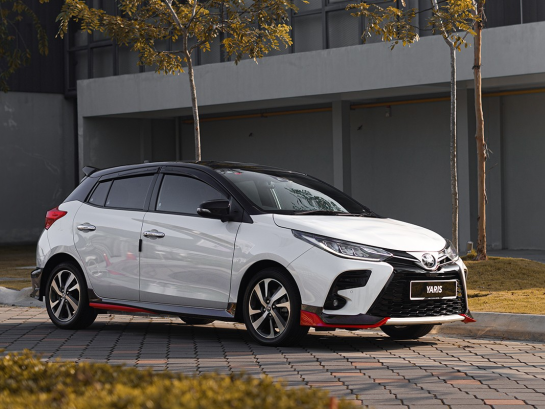
Toyota Yaris Interior Design Revealed: The Ideal Choice for Daily Commutes
AshleyJul 17, 2025
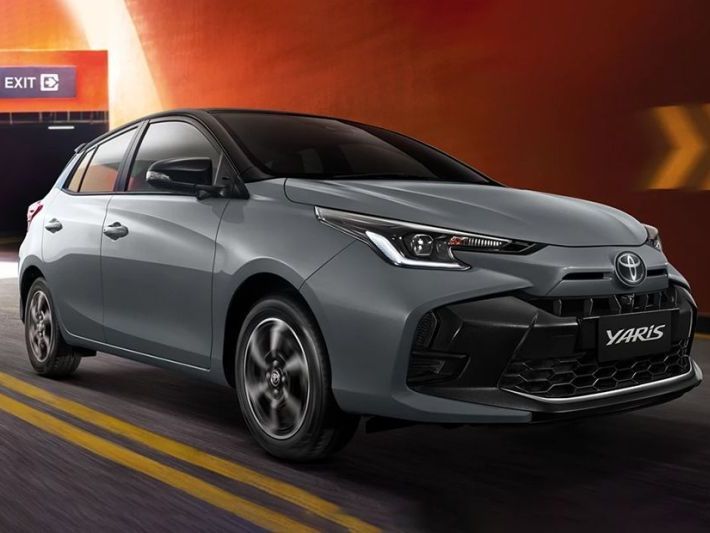
Highlights of the Toyota Yaris: The Perfect Fusion of Outstanding Power and Comfortable Handling
MichaelApr 16, 2025
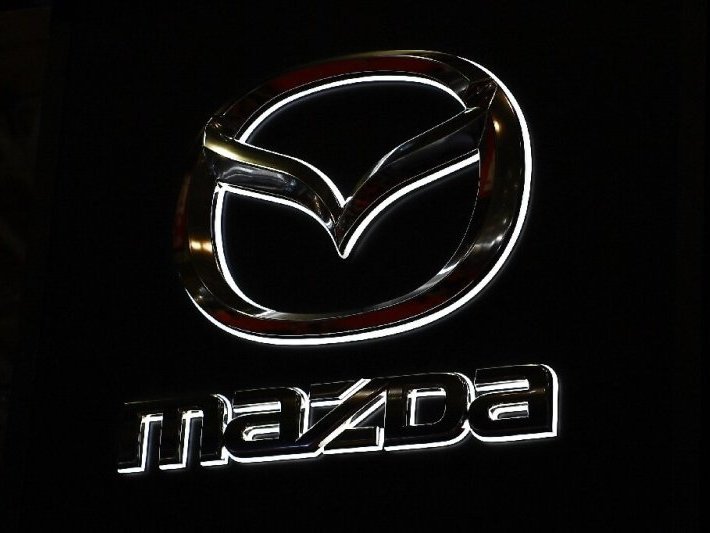
Mazda Plans to Launch CX-20 in Southeast Asia to Compete with Toyota Yaris Cross
RobertMar 20, 2025
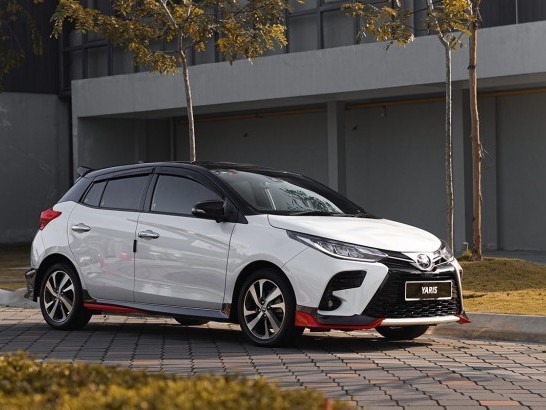
Is my Yaris fuel consumption normal? What should the fuel consumption per 100km be?
MichaelFeb 28, 2025

Toyota takes the crown at the second stop of the 2025 WRC, the GR Yaris helps Toyota take the top of the points table
JamesFeb 19, 2025
View More


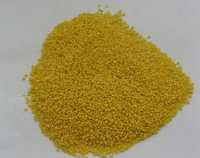









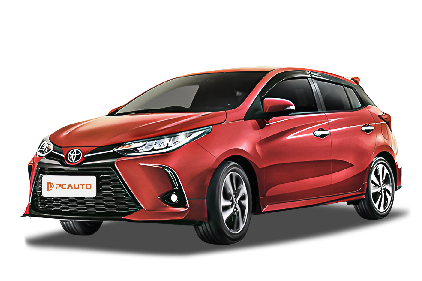





Pros
Cons